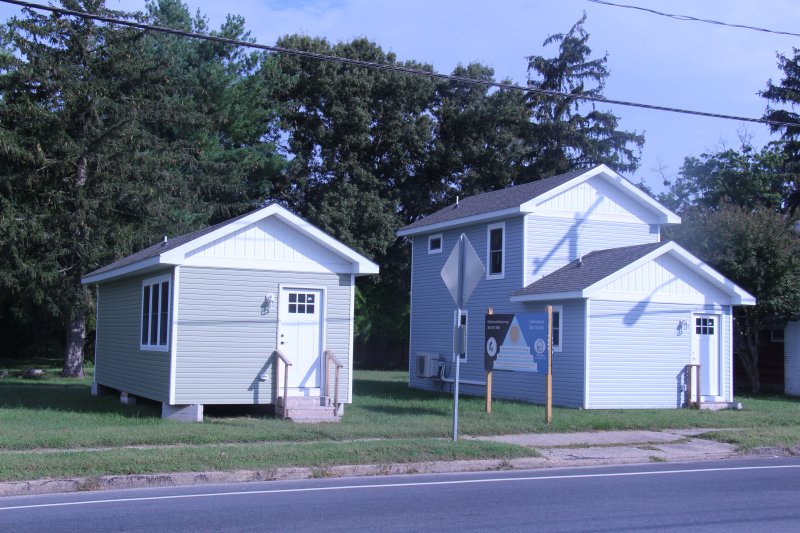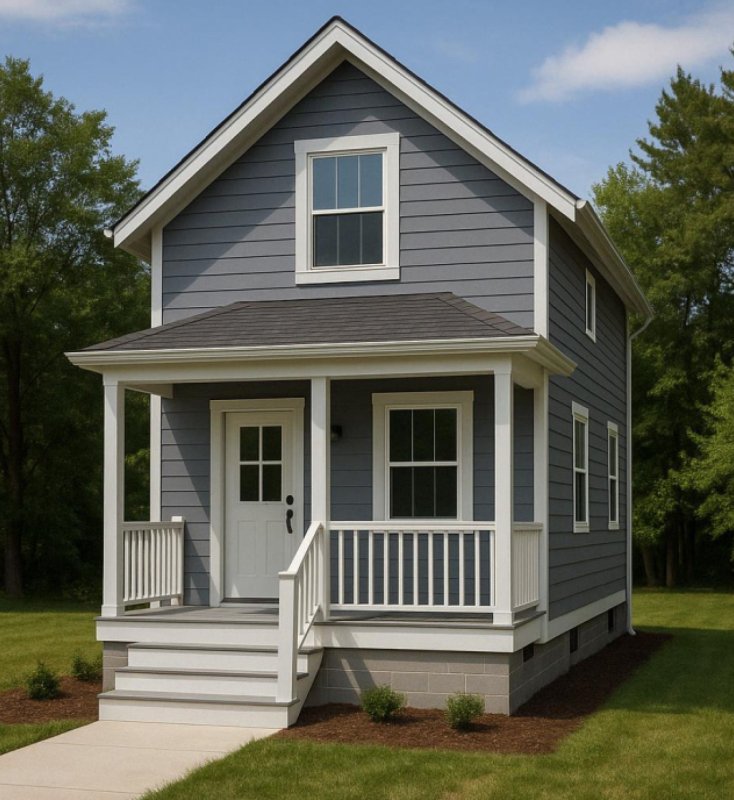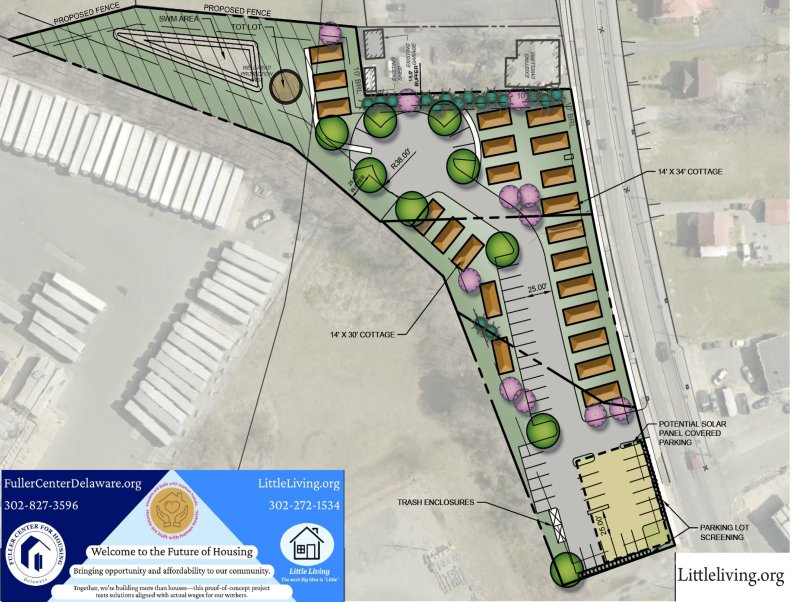Georgetown considers rules allowing small-house clusters
As Georgetown works to complete rules for small, affordable houses, developers of two projects are waiting to apply under that law, one of them seeking to help homeless people find permanent residences.
The Georgetown Planning Commission held a public hearing Sept. 17 on a proposed cottage community amendment to its housing code to allow clusters of small houses in UR-1 urban residential districts.
Toni Short, director of Lighthouse for Broken Wings, was among those who spoke in favor of the rules. Her organization helps homeless women, some with families and physical disabilities.
“We need these small, little houses which are affordable for the residents to be able to be productive in our society,” Short said. “They are already working at the stores, at the restaurants. They’re working at minimum-wage jobs. Some have two. Rent is very expensive.”
Town Manager Gene Dvornick gave a presentation at the meeting on workforce and affordable housing, and the cottage community concept.
The proposed ordinance would allow for construction of the workforce and affordable housing option. It is encouraged in the town’s 2021 comprehensive plan and complies with a state mandate that municipalities ease rules for such housing, Dvornick said.
Little Living and the Fuller Center for Housing of Delaware asked Georgetown officials in February if they could build a small house community, but the town had no rules for that type of development, he said.
The groups want to build 22 homes on a 1-acre site on East Market Street across from Parsons Lane. The property is a brownfield where a gas station once operated.
Springboard Delaware, which operates Pallet Village, a group of small residences for homeless people in Georgetown, wants to develop a cottage community on a 14-acre parcel off Sand Hill Road. It presented its concept and lobbied for support during a tour and luncheon for state lawmakers in May.
Cottage house developments are one option for affordable rental and affordable ownership, Dvornick said
“This is not a solution for homelessness” he said. “It is not designed for homeless individuals to move into. It is truly for folks who are working, and they are looking either for a place to rent or a place to live and own.”
Tony Vinciguerra, a board member of Little Living, said the residents would have jobs and would not require government housing vouchers to pay their rent.
Judson Malone, executive director of Springboard Delaware, which operates Pallet Village, said some of the residents of the project his group is planning would use vouchers, even though they have jobs.
“We want to target it as a mixed-income community,” Malone said. “The people who are coming out of Pallet Village almost certainly will need vouchers. And we are looking at project-based vouchers. When they come, they will be able to afford to live there, contributing whatever they can afford to contribute, so long as the sum total is within 30% of their gross income. That’s classically what’s considered affordable. Even millionaires have a budget.”
Small houses are not a new concept, as similar homes were built in the 1800s on North Street, Dvornick said.
Town council passed a resolution allowing Little Living to build two prototype homes, one with one bedroom and the other with two bedrooms, on East Market Street. They were constructed in March and April.
Town Community Development Director Brian Olszak said the small homes are developed with common open space and possibly community buildings and other spaces.
In addition to the town’s design standards, cottage homes would have porches, sidewalks or paths to each cottage, buffer yards, shared open space and private open space. Some of the houses could front on the open space.
Planning commission Chair Larry Rohlfing insisted that such projects should be for people who have jobs, not transitional housing. That was included in the recommendation passed along to the town board to consider as it moves to finalize the law.
“I understand $2,000 to rent an apartment is ridiculous,” Rohlfing said. “I understand that. I would like to help those people. I just don’t think Georgetown needs to be the town in Sussex County that solves all homeless issues for the state. I think without some stipulation that this is a workforce project, not a transitional project, it is going to be a transitional housing project.”
At the recommendation of Commissioner Thomas Allen, the town board was also asked to not permit cottage home projects to be built on leased land. Allen said leases could increase, making housing unaffordable for tenants.
Town council plans to hold a public hearing on the cottage community proposal at 6:45 p.m., Monday, Oct. 27.
Allen said rules created by the town must equally consider all types of development that it would govern.
“Notwithstanding what I’ve heard about both communities this evening, I think the ordinance is going to apply well beyond these two communities that we’ve heard about tonight,” he said.
Kevin Conlon came to the Cape Gazette with nearly 40 years of newspaper experience since graduating from St. Bonaventure University in New York with a bachelor's degree in mass communication. He reports on Sussex County government and other assignments as needed.
His career spans working as a reporter and editor at daily newspapers in upstate New York, including The Daily Gazette in Schenectady. He comes to the Cape Gazette from the Cortland Standard, where he was an editor for more than 25 years, and in recent years also contributed as a columnist and opinion page writer. He and his staff won regional and state writing awards.
Conlon was relocating to Lewes when he came across an advertisement for a reporter job at the Cape Gazette, and the decision to pursue it paid off. His new position gives him an opportunity to stay in a career that he loves, covering local news for an independently owned newspaper.
Conlon is the father of seven children and grandfather to two young boys. In his spare time, he trains for and competes in triathlons and other races. Now settling into the Cape Region, he is searching out hilly trails and roads with wide shoulders. He is a fan of St. Bonaventure sports, especially rugby and basketball, as well as following the Mets, Steelers and Celtics.
























































